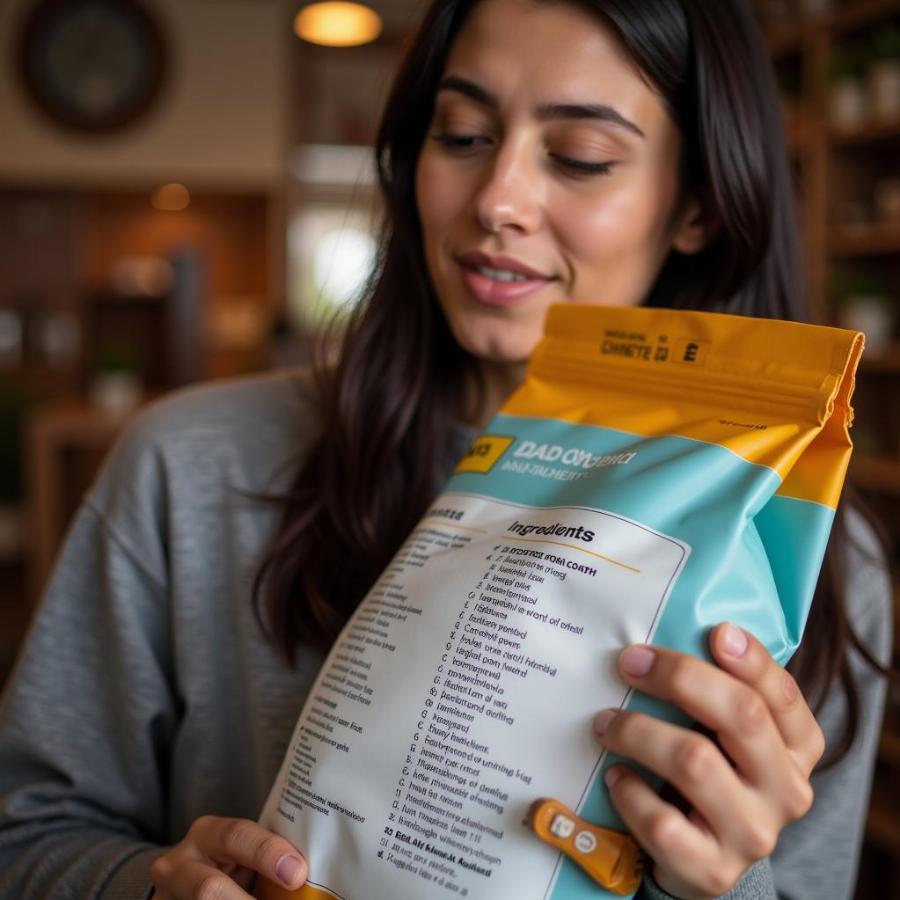Choosing the right high protein dog food for weight gain can be a crucial step in ensuring your canine companion’s health and well-being. Whether your dog is recovering from an illness, naturally lean, or simply needs to pack on a few pounds, a protein-rich diet can make all the difference. This article will guide you through everything you need to know about selecting and utilizing high protein dog food for healthy weight gain.
Understanding the Importance of Protein for Weight Gain in Dogs
Protein is essential for building and repairing tissues, supporting muscle growth, and maintaining a healthy immune system. For dogs needing to gain weight, protein provides the necessary building blocks to add healthy mass, not just fat. It’s important to distinguish between healthy weight gain and simply adding empty calories. A high-protein diet encourages lean muscle development, resulting in a stronger, healthier dog. Choosing the right high protein food is about more than just calories; it’s about providing balanced nutrition that supports your dog’s overall health.
How to Choose the Best High Protein Dog Food for Your Pet
When selecting a high protein dog food for weight gain, look for a food with a protein percentage of at least 30%. Check the ingredient list to ensure that the protein sources are high-quality, such as chicken, beef, lamb, fish, or eggs. Avoid foods with fillers like corn, wheat, and soy, as these offer less nutritional value. Consider your dog’s age, breed, and activity level. Puppies and active dogs require more protein than senior dogs or those with less active lifestyles.
 Checking Dog Food Ingredients
Checking Dog Food Ingredients
Transitioning to a High Protein Diet
Introducing a new food should be done gradually to avoid digestive upset. Start by mixing a small amount of the high protein food with your dog’s current food, gradually increasing the proportion of the new food over several days. Monitor your dog for any signs of digestive issues, such as vomiting or diarrhea. If these occur, slow down the transition or consult your veterinarian.
Monitoring Your Dog’s Progress
Once your dog is fully transitioned to the high protein diet, regularly monitor their weight and body condition. You should be able to feel their ribs but not see them prominently. Adjust the amount of food you’re feeding as needed to achieve healthy weight gain. Don’t overfeed, as this can lead to obesity, which carries its own set of health risks.
Combining Diet with Exercise for Optimal Results
While a high protein diet is crucial for weight gain, combining it with appropriate exercise is equally important. Exercise helps build muscle mass and promotes overall health. Consult your veterinarian to determine the best exercise plan for your dog’s age, breed, and health condition. Remember, even short walks or play sessions can make a big difference.
When to Consult a Veterinarian
If your dog is not gaining weight despite a high protein diet, consult your veterinarian. Underlying health issues can sometimes hinder weight gain, and your vet can help identify and address any potential problems. They can also offer personalized advice on the best diet and exercise plan for your dog.
Conclusion
Choosing high protein dog food for weight gain is a significant decision that can greatly impact your dog’s health and well-being. By understanding the role of protein, selecting the right food, and monitoring your dog’s progress, you can help your furry friend achieve a healthy weight and a higher quality of life. Remember to consult with your veterinarian for personalized advice and to address any concerns.
FAQs
-
What are some good sources of protein in dog food? Chicken, beef, lamb, fish, eggs, and pea protein are all excellent sources of protein for dogs.
-
How much protein does my dog need for weight gain? A good starting point is a food with at least 30% protein. However, your vet can provide more specific recommendations based on your dog’s individual needs.
-
What should I do if my dog experiences digestive issues with high protein food? Slow down the transition to the new food or consult your veterinarian.
-
Can I give my dog protein supplements? Consult your veterinarian before giving your dog any supplements.
-
Is high protein food safe for all dogs? While generally safe, it’s best to discuss dietary changes with your vet, especially if your dog has pre-existing health conditions.
More Helpful Resources on Beaut Dogs
Beaut Dogs: Your Ultimate Guide to Canine Companions
Beaut Dogs is your one-stop resource for all things dog-related, providing expert advice, practical tips, and valuable insights into the world of canine care. From breed information to health and nutrition, we’re here to help you provide the best possible care for your furry friend. When you need assistance or have questions, please contact us at Email: [email protected] to get detailed and accurate answers from Beaut Dogs.